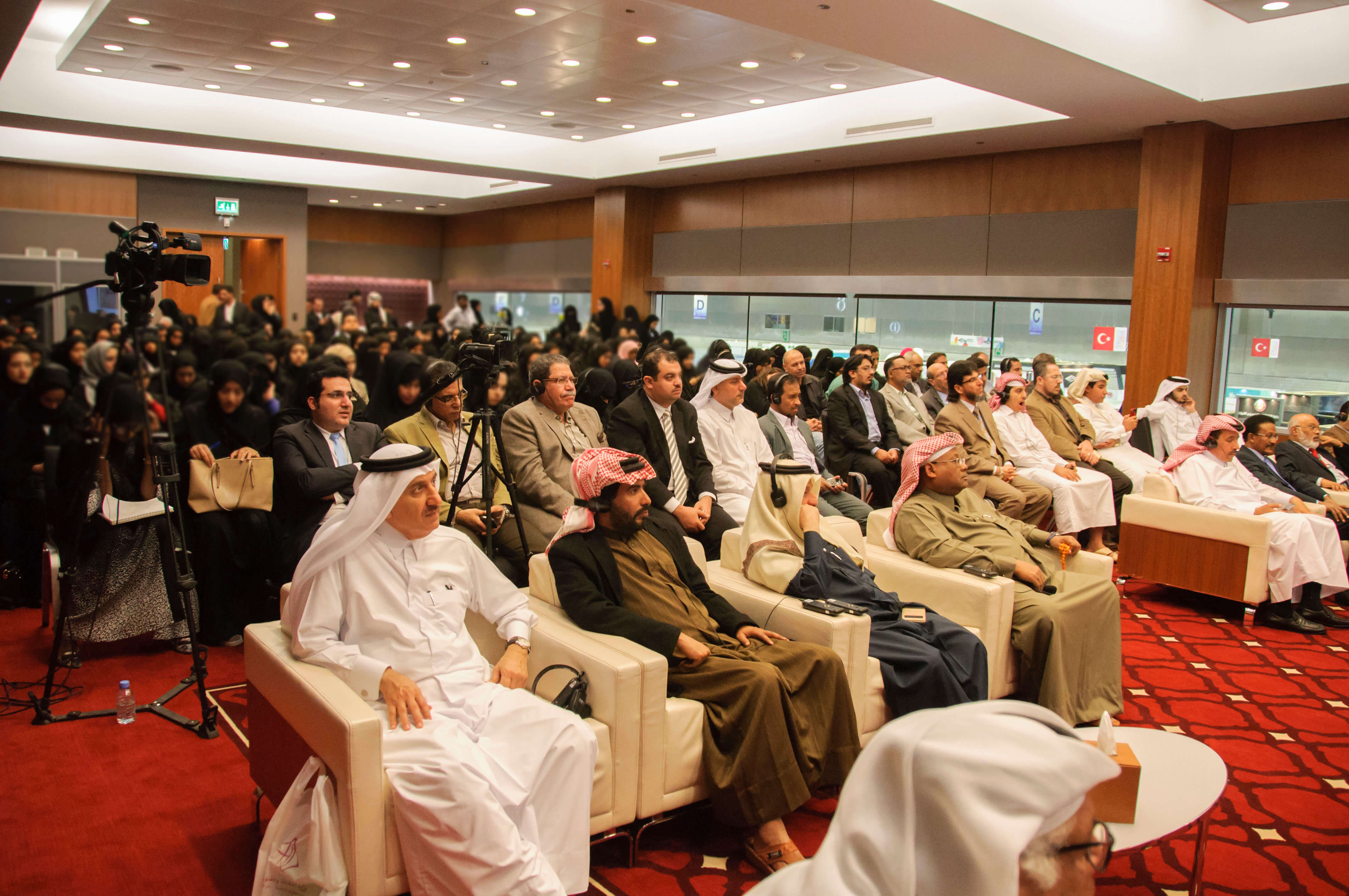
The Muhammad Bin Hamad Al-Thani Center for Muslim Contribution to Civilization at Qatar Faculty of Islamic Studies, a college of Hamad Bin Khalifa University, organized a symposium on December 9th at the Qatar National Convention Center titled “Ibn Haytham’s Contribution to Human Civilization.” Held in collaboration with the Department of Public Libraries – Qatar Books House at the Ministry of Culture, Arts, and Heritage and in coordination with the Doha International Book Fair, the event highlighted the scientific contributions of the Muslim scholar, Al-Hasan Ibn al-Haytham on the occasion of the 1000th anniversary of the first publication of his book, Kitab Al-Manazir, Book of Optics.
The event featured Dr. Aisha Al-Mannai, Dean of HBKU’s Qatar Faculty of Islamic Studies, Professor Albert Marc Smith, Professor and Curator of Museums at the University of Missouri, and Mr. Hamilton Morgan, diplomat and author of several books on Arabic sciences. The scholars reflected on the work of Ibn Al-Haytham, a pioneering and innovative scientific thinker recognized for his contributions to the understanding of vision, optics, and light.
Dr. Al Mannai noted: “As UNESCO declared 2015 to be the International Year of Light, the Muhammad Bin Hamad Al-Thani Center for Muslim Contribution to Civilization wanted to recognize the work of Ibn Al-Haytham, one of the earliest and most researched scientists to study the characteristics of light and optical science.”
She continued: “The symposium was intentionally organized during the book fair to bring awareness to Ibn Al-Haytham’s importance as an encyclopaedic scientist and in order to expose individuals from different cultural backgrounds and nationalities to his work.”
The Muhammad Bin Hamad Center for Muslim Contribution to Civilization was established to provide non-Arabic speakers with access to scholarly works that underscore the contributions Muslims have made to human civilization. The center currently provides English translations of major works of Muslim scholars, spanning the period from the 1st to the 9th century A.H. when Islamic civilization was at its peak and greatly influenced contemporary world civilizations, laying the foundation for the European Renaissance. The work and lives of Muslim scientists are often highlighted, with books translated into multiple languages to promote their role in contributing knowledge to the improvement and development of societies around the world.
Books translated by the center were on display at the Doha International Book Fair. Those interested in learning more about the center and its other upcoming events are invited to visit http://www.qfis.edu.qa/research-centres/mohammed-bin-hamad-center.





